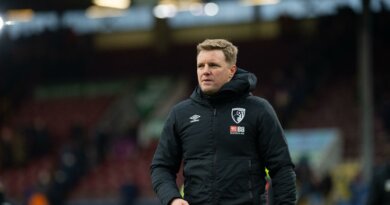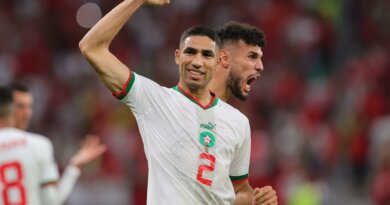Newcastle Panthers: Champions of Diversity in North East Sport
In a bold move towards diversity and acceptance, Newcastle Panthers are making waves in North East sports. As pioneers of LGBTQ+ inclusion, they’re not just a football team; they’re a symbol of progress, unity and acceptance – in a sport fronted by heterosexual men.
Established in 2008, Newcastle Panthers have been paving the way for change and positivity in North East sports – with the club being the region’s first LGBTQ+ inclusive football team.
Since the late 1900’s, football has been perceived as a sport reserved for heterosexual working-class males—an enduring stereotype that still persists today. However, this notion is currently under scrutiny, as clubs within the GFSN (Gay Football Supporters Network) are actively challenging how the sport is viewed by many.
While many professional football fans prioritize winning, the GFSN and Panthers diverge, seeing the game beyond victories. For them, football embodies values of inclusivity and community, offering a platform to challenge norms and celebrate diversity.
Panthers’ right-back, Gary Wylie, shared his perspective on the predominance of heterosexuality in the sport and expressed his affection for the club he represents, highlighting the imperative behind the team’s establishment.

“I really enjoy the social side everyone really gets along”, Wylie explained.
“We’re all friends it’s a bit of a family. We all have a laugh and a joke, it’s not just about the football it’s about the whole package of everything together.
“Everyone understands each other’s struggles, everyone is a bit different, and everyone has a different experience. But you know that someone is going to relate to the issues in sport and that’s a great thing about it.
“I think a lot of people don’t have the confidence to be a part of mainstream sports because of experiences when you are younger. The amount of comments you would get when you go to the gym, game classes at school, trying to go to football training – it would really put you off.
“So this is a place where you won’t get these types of comments, where you know you’ll feel like you belong and it will help you get more confidence. But if you do want to try and get into more mainstream sport it’s a place for you to grow in confidence to do that.”
Newcastle Panthers’ left-back, Isa Ali, echoed Wylie’s sentiment regarding the inclusive nature of their club.
“If I went to a regular team I wouldn’t feel welcomed. I have friends on the team who left other teams because they heard homophobic slurs in the changing rooms”, said Ali.
“I knew where I could chill, and play without fitting in with the status quo.”
Within the professional realm of the sport, acceptance is notably less abundant. Amidst millions of fans and the cloak of social media anonymity, the prospect of coming out for professional athletes can appear daunting and considerably more challenging.
In May 2022, Blackpool’s Jake Daniels became the first professional football player in the United Kingdom to come out as homosexual since Justin Fashanu in 1990.

The contrast in attitudes toward gay athletes between now and the 80s and 90s is striking. Unlike Fashnu, Daniels recounted his experience to Sky Sports, detailing how his teammates were incredibly supportive when he disclosed his sexuality.
“My teammates have all been so supportive about it and everyone has had my back”, said Daniels.
“They’ve been asking tons of questions, they have all been intrigued and their reaction has been brilliant. It’s the best thing I could have asked for.
“Of course, everyone was kind of shocked in a way and they were asking why I didn’t tell them earlier. That was a great reaction because it showed how much they cared.”
Wylie noted that sports fans are becoming more accepting every day towards members of the gay community.
“The world is progressing so much, especially in football – we feel so supported. For example, the Newcastle Foundation has helped us so much, 20 years ago that wouldn’t have happened so you feel more involved and you do feel safer in sport.”, explained Wylie.
In British football matches, insults about players’ sexuality are regrettably frequent. Gary Bennett MBE, a former Sunderland defender and anti-discrimination advocate, urges fans to confront hateful speech in stadiums, emphasizing the need for collective action against discrimination.
“I think the reason being [for less discriminatory language at football games now compared to 20 years ago] is that we are a lot more educated regarding racism”, said Bennett.
“I think we all acknowledge that racism can affect us all. We are a lot more, educated about LGBTQ as well – and understand that is something which can affect us all.
“I think we’ve just got to continue educating ourselves not just about racism, but about LGBTQ as well. it’s very important that if you hear or see, it’s important that we do report it.
“I think the longer it is not reported, then usually it is the worse it gets.”








